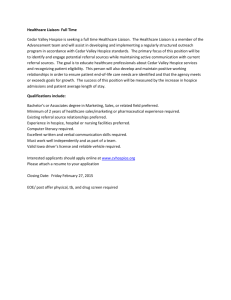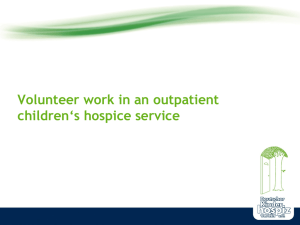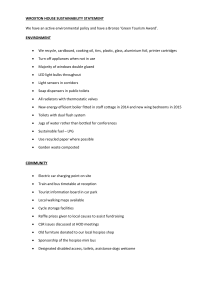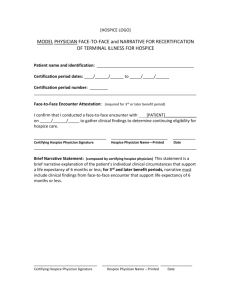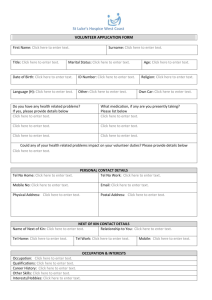1 - Australian Human Rights Commission
advertisement
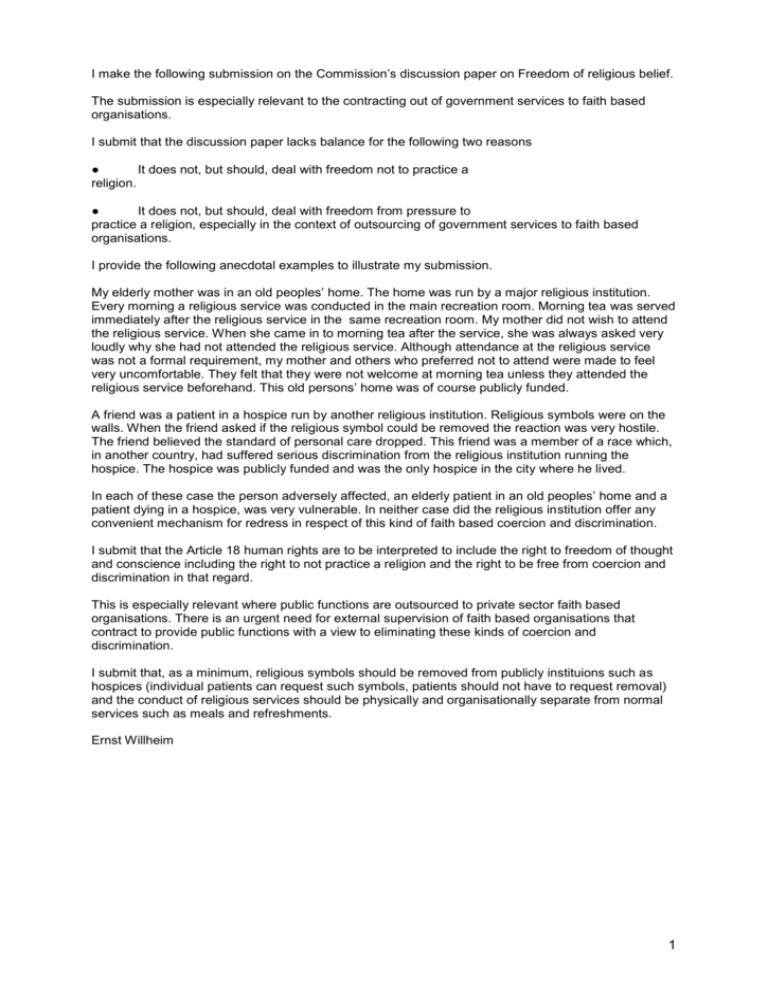
I make the following submission on the Commission’s discussion paper on Freedom of religious belief. The submission is especially relevant to the contracting out of government services to faith based organisations. I submit that the discussion paper lacks balance for the following two reasons ● It does not, but should, deal with freedom not to practice a religion. ● It does not, but should, deal with freedom from pressure to practice a religion, especially in the context of outsourcing of government services to faith based organisations. I provide the following anecdotal examples to illustrate my submission. My elderly mother was in an old peoples’ home. The home was run by a major religious institution. Every morning a religious service was conducted in the main recreation room. Morning tea was served immediately after the religious service in the same recreation room. My mother did not wish to attend the religious service. When she came in to morning tea after the service, she was always asked very loudly why she had not attended the religious service. Although attendance at the religious service was not a formal requirement, my mother and others who preferred not to attend were made to feel very uncomfortable. They felt that they were not welcome at morning tea unless they attended the religious service beforehand. This old persons’ home was of course publicly funded. A friend was a patient in a hospice run by another religious institution. Religious symbols were on the walls. When the friend asked if the religious symbol could be removed the reaction was very hostile. The friend believed the standard of personal care dropped. This friend was a member of a race which, in another country, had suffered serious discrimination from the religious institution running the hospice. The hospice was publicly funded and was the only hospice in the city where he lived. In each of these case the person adversely affected, an elderly patient in an old peoples’ home and a patient dying in a hospice, was very vulnerable. In neither case did the religious institution offer any convenient mechanism for redress in respect of this kind of faith based coercion and discrimination. I submit that the Article 18 human rights are to be interpreted to include the right to freedom of thought and conscience including the right to not practice a religion and the right to be free from coercion and discrimination in that regard. This is especially relevant where public functions are outsourced to private sector faith based organisations. There is an urgent need for external supervision of faith based organisations that contract to provide public functions with a view to eliminating these kinds of coercion and discrimination. I submit that, as a minimum, religious symbols should be removed from publicly instituions such as hospices (individual patients can request such symbols, patients should not have to request removal) and the conduct of religious services should be physically and organisationally separate from normal services such as meals and refreshments. Ernst Willheim 1



